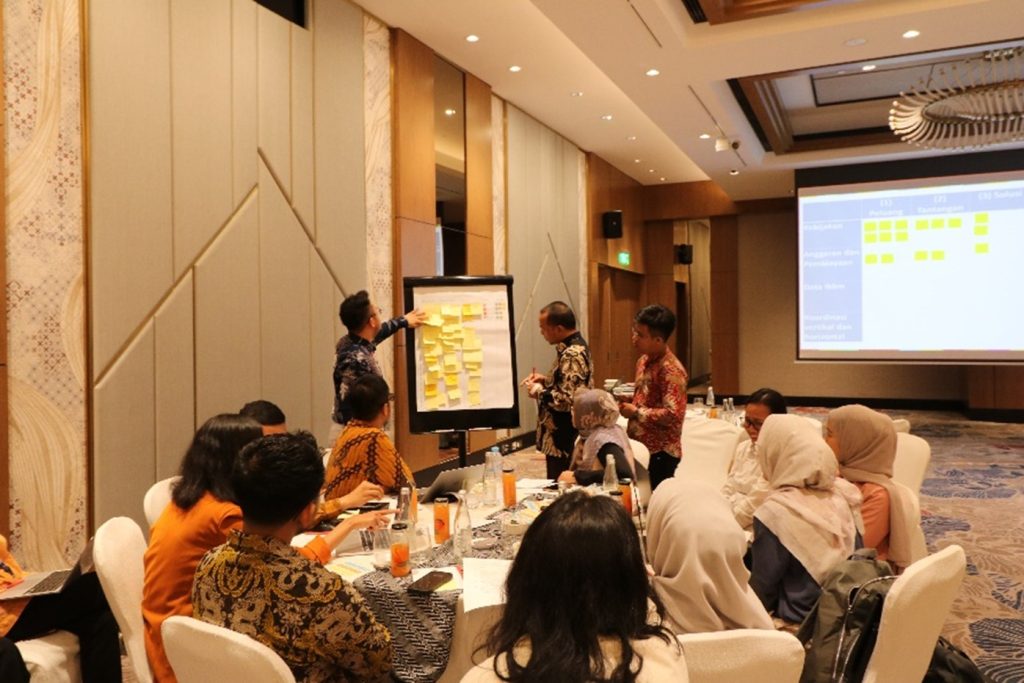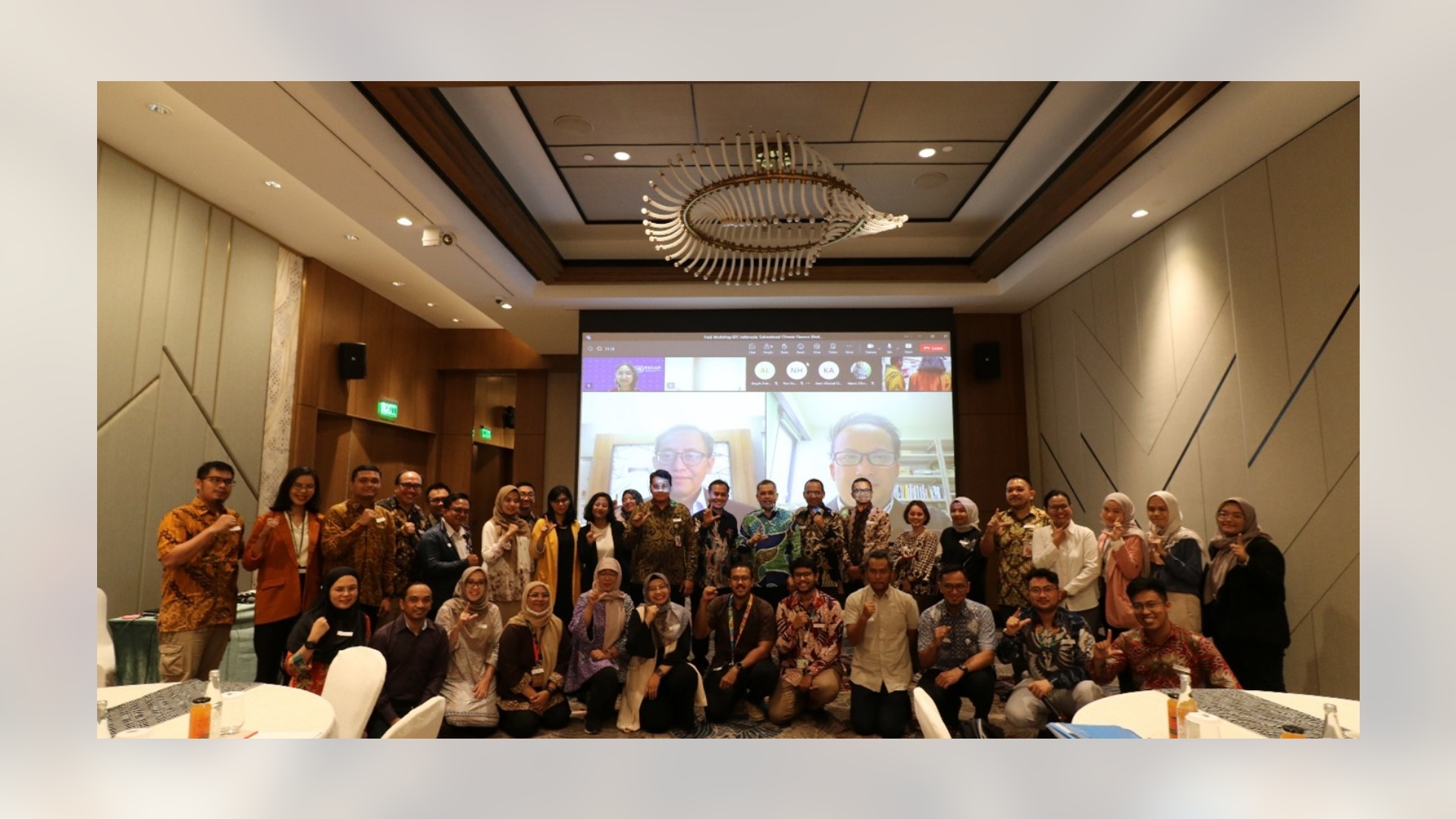April 18, 2024 | UCLG ASPAC, within the framework of the Urban-Act: Integrated Urban Climate Action for Low-Carbon and Resilient Cities collaborated with GIZ, supported ESCAP in a workshop on Assessing Indonesia’s Subnational Climate Finance Enabling Environment. Held in Jakarta on April 18, 2024, this workshop gathered 46 participants from central, provincial, and local governments, as well as associations, and development partners. The workshop shared the findings from the national assessment tool on the subnational climate finance enabling environment, gathered feedback, and refined assessment tools for further support regarding climate financing within the Urban-Act framework.
The workshop was graced by remarks from Mr. Curt Garrigan, Chief of the Sustainable Urban Development Sector of ESCAP, Mr. Thomas Foerch, Cluster Coordinator of Green Infrastructure at GIZ, and Mr. Priyanto Rohmatullah, Director of Environment Affairs at BAPPENAS who underscored the challenges associated with climate financing. These challenges encompass urban accessibility issues, the reliance of governmental bodies on central funding for climate-related endeavours, the subordinate prioritisation of climate initiatives vis-à-vis other urban agendas, capacity constraints, limited access to information, and notably subdued contributions from the private sector.
Findings of the national assessment tools include:
- The assessment results find that Indonesia’s climate policy development is driven by administrative decentralisation, which enhances subnational administrative action on climate change. The critical point is that national government policies need to be complemented by implementing regulations, and technical, and financial assistance.
- Despite the existence of funding mechanisms for subnational governments to achieve climate targets, some improvements are also needed to enhance intergovernmental practices including the reliability of climate adaptation and mitigation funds from national to subnational governments.
- The utilisation of subnational climate data to navigate climate policy and budgeting is not well-established.
Recommendations suggested included:
- The national government needs to develop derivative regulations governing the technical aspects of climate finance policies as well as provide clear guidance for subnational governments to implement them in the local context.
- Organisation of peer learning forum.
- Enhancement of BRIDA’s (Local Research and Innovation Agency) role in conducting climate research.
- Integration of climate database.

Feedbacks were given by a panel comprising central government officials, academics, and practitioners comprising Mr. Priyanto, Mr. Mada Dahana (Director of Development Financing Planning, BAPPENAS), Ms. Anna Amalia (Senior Planner, BAPPENAS), Mr. Saut Sagala (Associate Professor, ITB), Ms. Debi Nathalia (Climate Finance Coordinator, UNDP), and Dr. Mizan Bisri (Associate Professor, Kobe University). This was followed by a breakout session aimed at enriching the findings from the ongoing assessment and identifying support under the Urban Act framework to enhance local government access to climate financing.
Following the workshop, a coordination meeting was convened with representatives from the Urban-Act pilot city (Medan City) and the North Sumatra province to discuss the implementation of subnational assessment tools and coordinate efforts towards enhancing climate finance initiatives at the local level. Feedback noted included:
- It is imperative for local governments to establish mandatory targets for the reduction of Greenhouse Gas (GHG) emissions and GHG intensity in accordance with their respective modalities, thereby necessitating an allocation of responsibility within their budgeting processes.
- The issue of climate change can be incorporated into the Minimum Service Standards (SPM) to prioritise it at the regional level.
- Encouraging the implementation of One Data Indonesia for the integration of climate change data.
The result of this event will be used as the baseline for Urban-Act to prepare and provide evidence-based, effective, and efficient support to the beneficiaries in Indonesia, especially the Pilot Cities (Padang and Medan City). The findings from the assessment tools will also become a baseline to measure the achievements and objectives of the project in the aspect of climate finance. Following up on this, UCLG ASPAC is currently preparing the draft of the policy review on “Vertical Integration on the Instruments for Low Carbon and Climate Resilient in Indonesia.” This review provides a current outlook on the current condition in Indonesia in achieving climate targets through the perspective of existing climate policies in Indonesia, including the national, provincial, and local levels.











